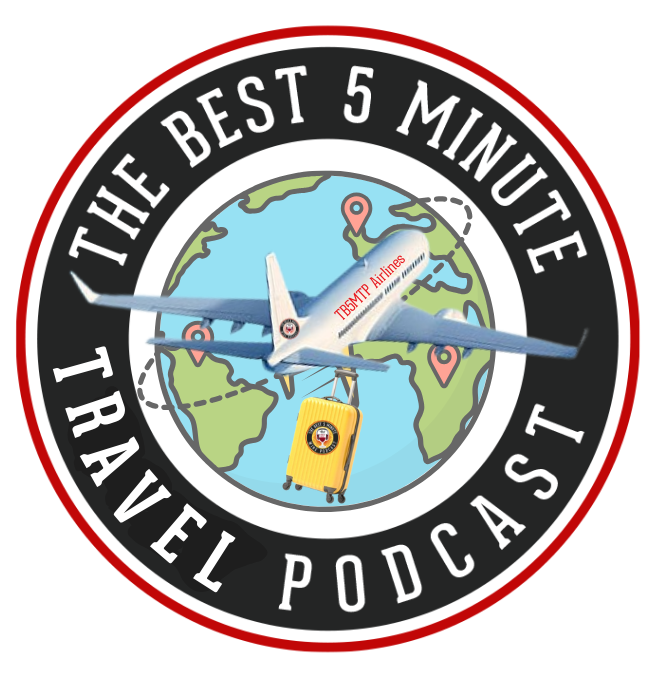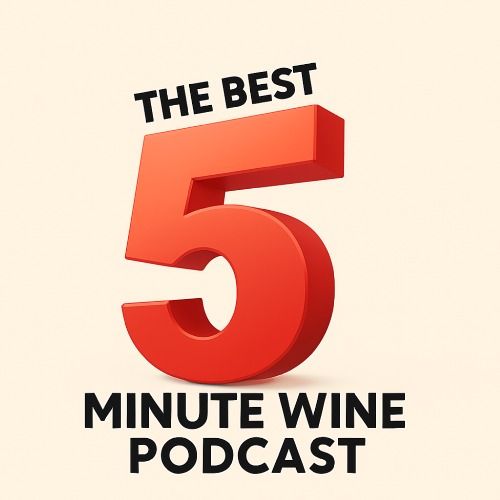Top 5 Must-Visit Destinations & Travel Hacks! Pt. 4
Get ready to pack your bags as Forrest Kelly and travel expert James Hammond dive into essential travel safety tips and share their top five travel destinations. From the importance of a sturdy padlock for your luggage to the necessity of a well-stocked first aid kit, they emphasize how being prepared can enhance your travel experience. James highlights the significance of having good walking shoes, especially when exploring less paved areas around the world. The conversation also touches on the incredible kindness and hospitality found in Japan, illustrated by personal anecdotes that showcase the culture's warmth. Join them for a lively discussion filled with travel insights, humor, and inspiration for your next adventure!
Takeaways:
- Always secure your travel bags with a strong padlock and have backup keys.
- A well-stocked first aid kit is essential for any trip, especially in remote areas.
- Invest in good walking or hiking shoes to navigate uneven terrains safely.
- Japan stands out for its incredible culture, safety, and a variety of experiences.
- Hiroshima offers a unique blend of history and modernity, with poignant reminders of the past.
- Traveling can enhance your perspective on kindness and humanity through shared experiences.
Transcript
Pack your bags. Let's take a ride. 5 minutes flat and we'll explore the wide with Forrest Kelly, it's travel time. It's The Best 5 Minute Travel Podcast, Let's go.
James Hammond:Travel safety.
I would also have a very good padlock and make sure you have two keys because when you go to certain areas of the world, you know, the Americas could be a good case for this, like Central or South America. You don't want people slipping in anything that's going to be causing chaos at the airport. That is drugs or something, right.
So make sure you can zip up your bag and lock it up pretty good with a good padlock. And make sure you have two keys so in case you lose one, there's still a backup somewhere else.
Forrest Kelly:Wow, I've never heard that suggestion, but that makes total sense. Especially, you know, if you're watching a Liam Neeson movie or something. You know, you see that happen all the time. Two more.
James Hammond:Two more. Safety. I would always take a first aid kit.
Pretty cliche, but for my Central America trip just now for a month, I had an array of kit in there for band aids and antiseptic wipes, some cotton buds, some medication in there in case I need, I don't know, I got bitten by some really bad bugs. Whatever it is, just have a good first aid kit wedged in your bag.
And actually I helped someone with a pretty bad cut on barbed wire actually on a hike in Central America. So I made sure I cleaned up for him and gave him a band aid. So that was, that came in handy.
Forrest Kelly:Oh, good. And then the last one, the last one.
James Hammond:This might sound a bit weird, but for safety I'd have a really good pair of walking shoes or hiking shoes. Just because some people, some countries aren't paved roads or paid paths. Right.
You're going to be walking amongst not very well built roads or pavements or sidewalks. So I would make sure your feet are protected by good shoes, but also good socks as well.
Just to make sure your feet are protected because you need them to travel about.
Forrest Kelly:So, okay, let's shift from safety to your top five destinations.
James Hammond:Top five for me personally would be Japan, Bolivia, El Salvador. I would say New Zealand and let's go for somewhere in Europe. I love Italy.
Forrest Kelly:Yeah, I was going to say that most everybody in the top two is Italy is in there. But you put them, you put them down near the bottom. Why Japan?
I mean outside of the, you know, the major cities, Tokyo and some other major ones, it's a beautiful country. But why did you Pick Japan, because.
James Hammond:I love the people and the culture, and it's probably one of the few places that I would go back to.
Forrest Kelly:Interesting. Okay.
James Hammond:Because I loved going to new countries, right. But that if tomorrow someone said, are you going to Japan? I'm like, yeah, get me there straight. Great transport system, very safe.
Great food, not too expensive, in my opinion. You can go to Okinawa to the beach. You can go to up north to do skiing in Sapporo. A plethora of options. Culture, just amazing country.
Forrest Kelly:Does the culture make the people or the people make the culture, do you think?
James Hammond:Great question. I'd always tend to go with people make the culture.
Forrest Kelly:Is it just their demeanor or their submissiveness? Or can you put your finger on it?
James Hammond:The perceived. I'm sure it's true kindness and empathy to help you out. I'll give you one example or two. My partner left her wallet at the metro station.
Just arrived in Japan. Tokyo. She left it there. We didn't realize until we got to the hotel.
And you get that really bad feeling where you're trying to search your bag or your wallet and you realize it's not there. So we're like, oh, what do we do? So we spoke to the hostel owner and they said, we'll ring the station.
And then they found someone who spoke English at the station, and they had found her wallet and a list of everything they found in the wallet and made sure that nothing was missing and then held it there. So then she went back on the metro system back to the station, and there's like a little welcome fanfare. They gave us some drinks, real nice.
People making sure everything's okay. So that was an incredible experience. Like the first two hours of arriving in Japan. Wow. I guess you go back to where you're from, right?
If that was in London, that'd be gone.
Forrest Kelly:Yeah.
James Hammond:No chance of getting that back. So.
Forrest Kelly:Right. And I get the feeling that they were kind of looking at her like, what's the big deal? Yeah, of course it was safe. Was. No worries at all.
James Hammond:Yeah, of course. Yeah, exactly that. And my girlfriend also left a sucker Kindle. Actually, it's another company. Is it called CO or Kobo?
One of those E readers in Nagasaki. And we didn't realize until we got to, I think it's Hiroshima.
And the owner said, oh, now I'll post it to you in Tokyo to a friend that we knew, and he wouldn't accept any payment. And he said, no, I'll post it to first class. I'll be there tomorrow. So. Wow.
Just Those sort of things that kind of make you feel like, ah, humanity is good.
Forrest Kelly:Right? Yeah. Then. Then when something. When do that for somebody else. Yeah. You, you step up and say, okay, I'm gonna, as they say, pay it forward.
James Hammond:Yeah. Unbelievable.
Forrest Kelly:Just kind of a side note. Hiroshima. Hiroshima, however they pronounce it. But what is it like, you know, after the nuclear attack?
What is it visible still or is it recovered or what?
James Hammond:Well, Hiroshima has the famous tower in the middle of the city, which is still there from 45. Right. That's the only thing standing. And it was been left. It's kind of been left there and built around.
So if you go in the middle of this, of the city and you might have done your atomic bomb tour and you visit the museum, you can take a walk or bike ride along the river. It's really nice. But when you get to the middle, you'll see that one building there and it's quite iconic and obviously it's a modern city.
But the reminder is right there in the city center, quite stark.
Quite an unusual feeling, but I guess one of hope because they kind of left it there to appreciate the past, but then moved on with the country as it is now.
Forrest Kelly:We've touched down and landed. The episode's done with five quick minutes of travel and fun.
Forrest Kelly:This is your Captain speaking.
Forrest Kelly:We have touched down. That completes this episode.
Forrest Kelly:Join Forrest Kelly for the next big show, The Best 5 Minute Travel Podcast. Let's go.


